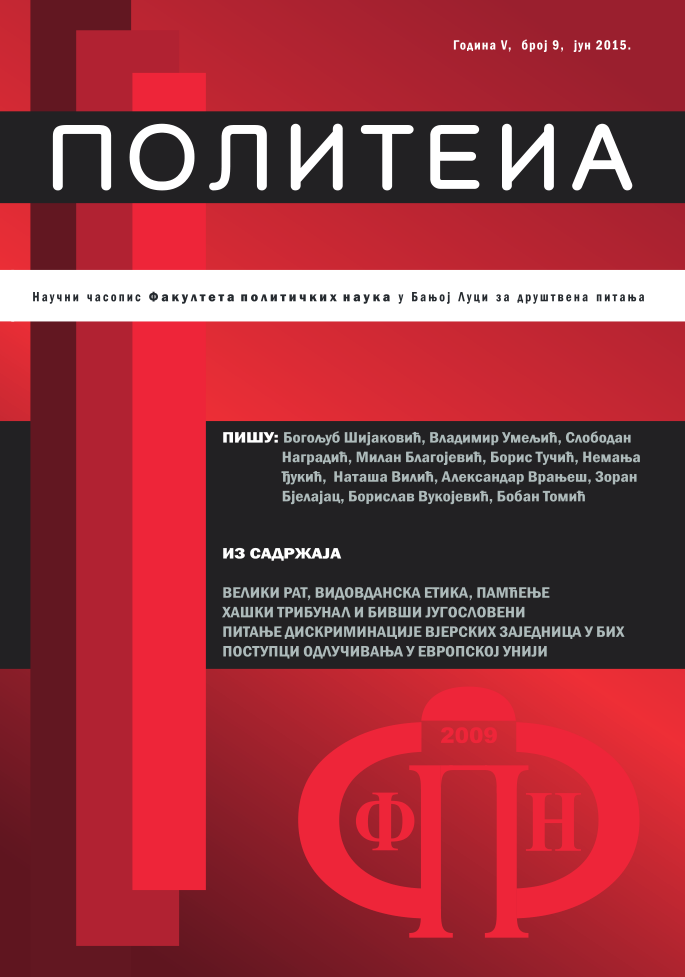Велики рат, Видовданска етика, памћење - о историји идеја и Спомену Жртве
The Great War, Ethics of Vidovdan, Memory - About the history of ideas and the memory of the victims
Author(s): Bogoljub ŠijakovićSubject(s): History, Ethics / Practical Philosophy, Social Philosophy, History of ideas, Military history, Contemporary Philosophy, Politics and religion, Politics and society, Pre-WW I & WW I (1900 -1919)
Published by: Fakultet političkih nauka Univerziteta u Banjoj Luci
Keywords: contemporaneity; expansionism; Great War; spiritual situation; ideas of 1914; intellectuals; Habsburg Monarchy; Serbia; preventive war; Young Bosnia; identity; history;
Summary/Abstract: Beginning with a characterization of contemporaneity (dominance of the financial sector and high technology, politicization of economy, ideological use of culture and control of the capacity for thought) and a brief analysis of expansionism (political, economic, cultural) on the eve of the Great War, the author embarks on a more detailed description of the spiritual situation in the wake of the Great War: in philosophy, literature, art, as well as the national-political programmatic texts and war propaganda publications of German intellectuals of the time. The continuity of the Austro-Hungarian colonial policy towards the Balkans and Serbia culminates in instigating a preventive war against Serbia by the elites in Berlin and Vienna, which is of importance with regard to the question of responsibility for the war, guided by concrete aims of war in which causes for war are reflected. These war elites wanted to declare the assassination in Sarajevo as the cause of war, which in fact was a political assassination and tyrannicide. The freedom movement of democratic youth, Mlada Bosna (Young Bosnia), needs to be viewed in the European context as inspired by the Serbian tradition of the cult of Kosovo and the ethics of Vidovdan (St Vitus' Day) which speaks both about the victim's sacrifice as sublimation of history and about just suffering as elements of identity. Historical memory suggests that historical responsibility is transgenerational. The epic proportions of Serbian suffering in the Great War have additionally encouraged the positing of the theme of St Vitus' Day Temple (Vidovdanski Hram) as envisaged by Ivan Meštrović. The foundations of this idea were shaken by Miloš Crnjanski who, in his 'Lyrics of Ithaca', succeeds in returning to Vidovdan (St Vitus' Day) the inexhaustible national power of validity. Because of enormous Serbian military and civilian casualties in recent history, the need to establish a Victim's Sacrifice Memorial, in our day has identity and existential, ethical and ontological significance for the Serbian nation.
Journal: Politeia - Naučni časopis Fakulteta političkih nauka u Banjoj Luci za društvena pitanja
- Issue Year: 5/2015
- Issue No: 9
- Page Range: 9-57
- Page Count: 49
- Language: Serbian

